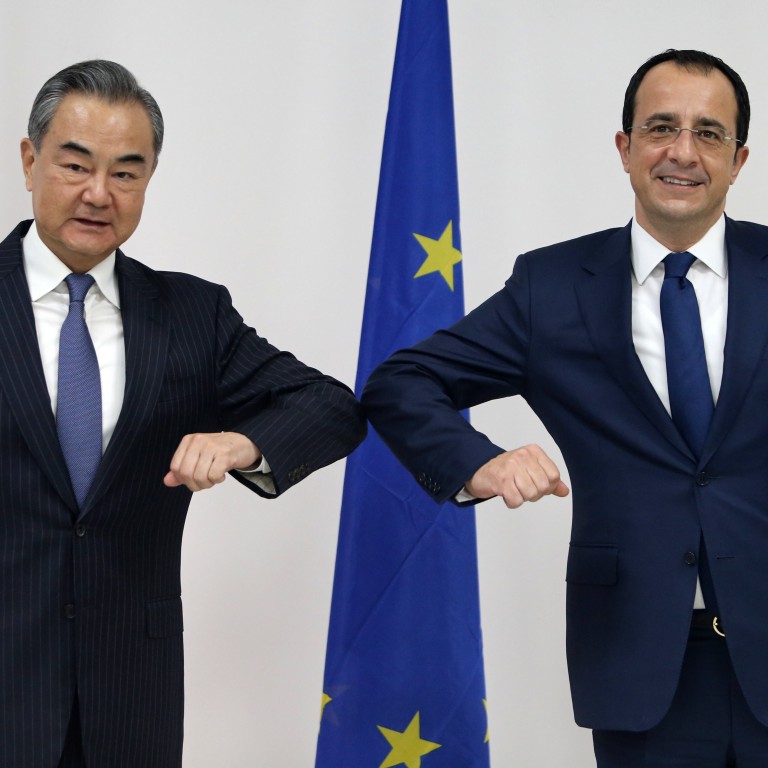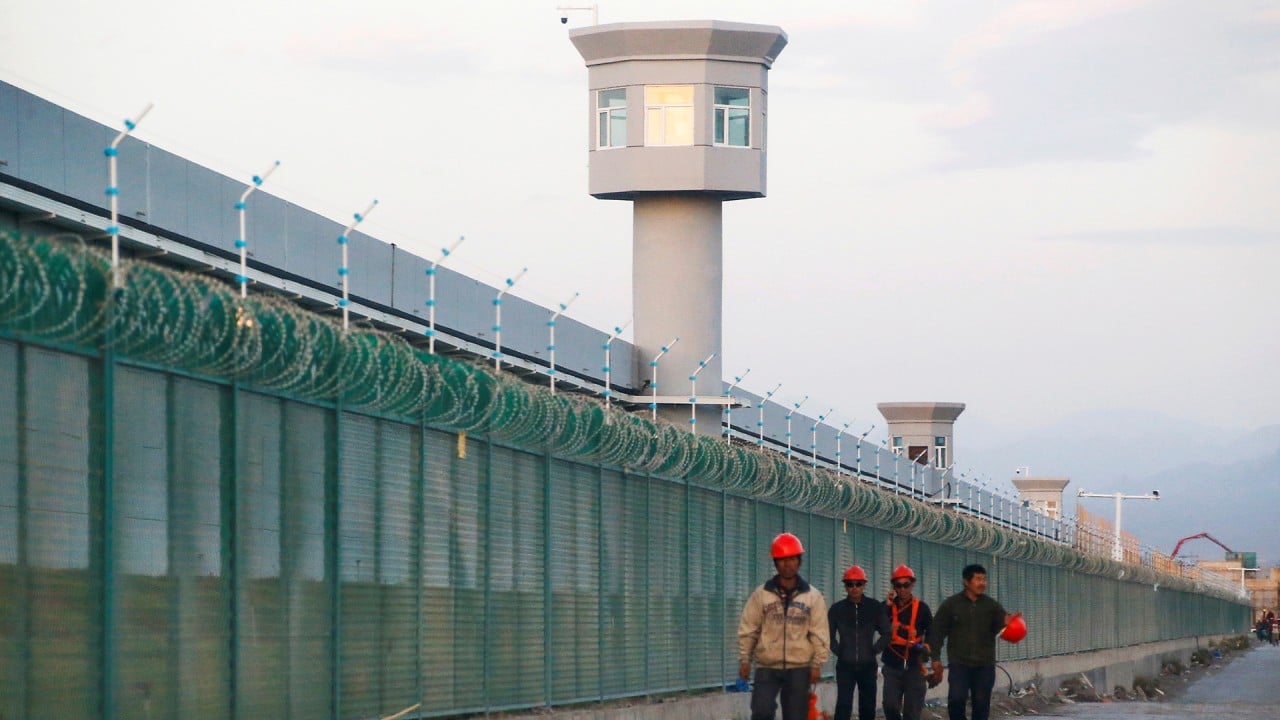
EU should not let others interfere in relations with China, Wang Yi says
- Beijing and Brussels are partners not rivals, according to Chinese foreign minister who called for win-win cooperation
- The US was not directly referred to but Washington is known to be uneasy about EU-China investment deal
Wang, the most senior Chinese official to raise the issue of China-EU relations since the deal was signed, was speaking at a meeting with his Cypriot counterpart Nikos Christodoulides on Tuesday, before heading to Africa.
Who’s the real winner of the China-EU investment deal?
“China-EU relations should not be affected by external interference, but continue to advance towards win-win cooperation,” Wang said, adding that Beijing regarded the EU as a major force for a multipolar world.
“China-EU consensus outweighs differences. The two sides are partners, not systemic rivals. China and the EU should understand and respect the choices of each other’s people, actively expanding common interests and enhancing mutual trust,” he said.
The EU branded China a “systemic rival” in 2019 and the conclusion of the comprehensive investment agreement – after seven years of negotiation – has been controversial across Europe, with low public support, according to European analysts.

01:54
China hits back at UK claims of forced sterilisations and other human rights abuses against Uygurs
Beijing denies the reports and claims the camps are vocational skills training centres intended to tackle terrorism in the largely Muslim region. China has also claimed that many Muslim countries speak highly of its policies in Xinjiang.
The EU-China investment deal has also caused disquiet in Washington, where the incoming Biden administration is planning to revive US ties with Brussels and form a coordinated approach to Beijing.
In an interview with CNN on Sunday, incoming national security adviser Jake Sullivan said the US would seek to end the trade war with its European allies and work with them to deal with China’s trade practices and beyond.
“We are confident we can develop a common agenda on issues where we share deep concerns about China. And it’s not just on trade, it’s on technology. It’s on human rights. It’s on military aggression,” he said.
In wake of EU pact, Biden urges ‘coordinated approach’ to deal with Beijing
There are significant doubts in Europe about whether the investment deal provides meaningful guarantees and concessions from Beijing and some European observers say there is “genuine willingness” in the bloc to work with the US on China.
“Concluding negotiations of the investment agreement is unlikely to push the EU to fundamentally remodel its strategic thinking about the need for cooperation with the US and other like-minded countries on challenges posed by China, because it sees those challenges as much broader than the economic realm,” said Grzegorz Stec, analyst with the Mercator Institute for China Studies, a German think tank.
China-EU trade deal strengthens Beijing’s hand in power game with the US
Steven Blockmans, director of research at the Centre for European Policy Studies, a think tank based in Brussels, said the EU had handed a win to Beijing by “going soft on fundamental rights” – in particular International Labour Organization standards on forced labour – and splitting the transatlantic partnership.
“As a self-proclaimed ‘geopolitical’ actor, the EU still suffers from strategic myopia. This episode puts the new EU-US dialogue on China on the back foot even before it has begun,” he said.
Blockmans said there was a genuine willingness in Europe to work with the US on the strategic challenges faced by China, but not at all costs.
The provisional agreement on investment ahead of Joe Biden’s inauguration “shows the EU is bent on protecting its commercial interests and will not slavishly follow a hegemonic US in decoupling from China”.

